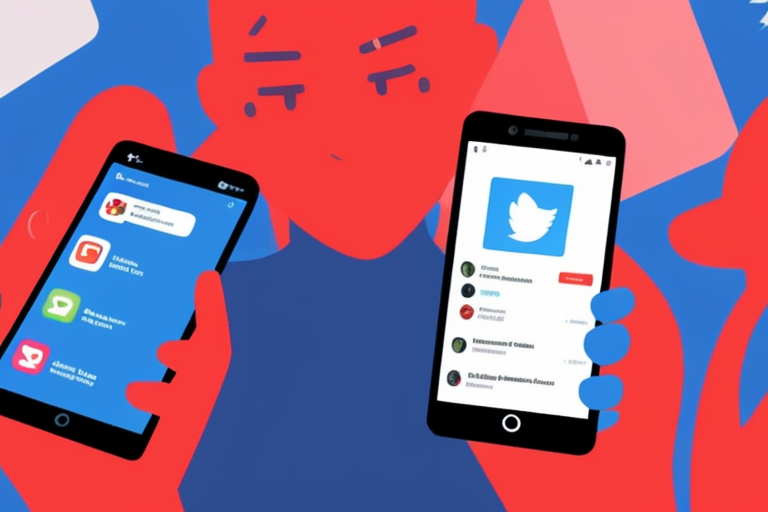The Power of Social Media in Politics
Social media has revolutionized the way we communicate, and politics is no exception. Social media platforms like Facebook, Twitter, and Instagram have become essential tools for political campaigning, fundraising, and voter outreach. In today’s digital age, politicians who fail to leverage social media risk losing touch with their constituents and falling behind their opponents.
The impact of social media on politics is undeniable. With billions of users worldwide, social media platforms provide politicians with unprecedented access to potential voters. By creating engaging content and leveraging social media algorithms, politicians can reach a vast audience with minimal effort and cost. Social media has also enabled politicians to connect with younger voters who might not otherwise engage in the political process.
However, social media’s impact on politics is not all positive. The rise of social media has also led to the spread of misinformation, fake news, and propaganda. Social media algorithms often prioritize sensational and controversial content, leading to the proliferation of echo chambers and political polarization. The manipulation of public opinion through targeted ads and the spread of fake news has become a major challenge in modern politics.
Despite these challenges, social media remains a powerful tool for political campaigning. Politicians who use social media effectively can build a loyal following, spread their message, and mobilize voters. Social media influencers have also become a force to be reckoned with in politics, with many politicians partnering with social media stars to reach younger audiences.
In the following sections, we will explore the impact of social media on voter decision-making, the challenges in regulating social media in politics, and the future of social media’s role in politics. By examining the opportunities and challenges presented by social media in politics, we can better understand its impact on democracy and the need for ethical and fair use of social media in political campaigning.
The Power of Social Media in Political Campaigns
Social media has revolutionized the way politicians reach potential voters. In the past, politicians relied on traditional media such as television and radio to reach their audience. However, with the rise of social media platforms such as Facebook, Twitter, and Instagram, politicians can now connect with voters in real-time and on a more personal level.
One example of a politician who successfully used social media to engage with voters is Frank Johnson, a candidate for the U.S. Senate. Frank’s son, who is a social media influencer, helped him with his campaign by creating engaging content for his social media accounts. Through his son’s help, Frank was able to reach a younger audience who may not have been interested in politics before.
Social media has also allowed politicians to connect with their audience in a more personal way. By sharing behind-the-scenes moments and personal stories, politicians can humanize themselves and connect with voters on a more emotional level. This can lead to increased trust and support from voters.
However, social media also has its downsides. The spread of misinformation and the manipulation of public opinion through targeted ads are just a few of the challenges politicians face when using social media in their campaigns. It is important for politicians to use social media ethically and responsibly to avoid these negative consequences.
Judges also play a crucial role in regulating social media platforms in politics. In recent years, there has been a growing concern about the influence of social media on elections. Judges must ensure that social media platforms are not being used to spread false information or manipulate public opinion. They must also ensure that social media platforms are not being used to discriminate against certain groups of voters.
The Impact of Social Media on Voter Decision-Making
Social media has become an integral part of our lives, and its impact on voter decision-making cannot be ignored. With the rise of social media platforms like Facebook, Twitter, and Instagram, politicians have found a new way to reach out to potential voters. However, the impact of social media on voter decision-making is a double-edged sword.
On the one hand, social media has made it easier for politicians to reach out to voters and engage with them on a more personal level. Social media campaigns have been successful in creating a sense of community and mobilizing voters to take action. For example, the “Ice Bucket Challenge” campaign on social media was able to raise over $100 million for ALS research.
On the other hand, social media has also been criticized for its negative impact on voter decision-making. Social media algorithms are designed to show users content that aligns with their interests and beliefs, creating echo chambers where users are only exposed to information that reinforces their pre-existing beliefs. This can lead to political polarization and a lack of critical thinking.
Studies have shown that social media can also be used to spread misinformation and propaganda, which can influence voter decision-making. The spread of “fake news” during the 2016 US Presidential election is a prime example of this. Social media platforms were used to spread false information about candidates, which influenced voter opinions and political affiliations.
However, social media can also be used to combat misinformation and propaganda. Social media influencers, who have a large following on social media, can use their platform to fact-check and debunk false information. This can help to promote informed and critical consumption of political information on social media.
The Dark Side of Social Media in Politics
Social media has revolutionized the way politicians campaign and communicate with their constituents. However, it has also brought to light a host of challenges that can have a significant impact on the democratic process. In this section, we will explore some of the challenges that come with using social media in politics and their effects on voter decision-making.
One of the most significant challenges is the spread of misinformation. With the rise of “fake news” and the ease of sharing information on social media, it has become increasingly difficult to distinguish between fact and fiction. This can have serious consequences for voter decision-making, as false information can sway opinions and lead to misguided political affiliations. In the 2016 US Presidential election, for example, false information spread on social media may have influenced the outcome of the election.
Another challenge is the manipulation of public opinion through targeted ads. Social media platforms have an enormous amount of data on their users, which can be used to target specific groups with political ads. This can be a powerful tool for politicians, but it can also be used to spread false or misleading information. In the UK’s Brexit referendum, for example, targeted ads were used to spread false information about the EU and immigration, which may have influenced the outcome of the vote.
Regulating social media platforms in politics is also a significant challenge. Social media companies are often reluctant to regulate political content, as they see themselves as neutral platforms for free speech. However, this can lead to the spread of false information and the manipulation of public opinion. Judges have a role to play in regulating social media platforms, but they are often limited by the law and the difficulty of enforcing regulations on a global scale.
Politicians’ children are also affected by the spread of misinformation on social media. In 2016, Frankie, a politician who used social media effectively in his campaign, faced criticism when false information about his son was spread on social media. This highlights the need for politicians to be aware of the potential consequences of their social media use and to take steps to protect their families from false information.
The Future of Social Media in Politics
Social media has already had a significant impact on politics, but what does the future hold? As technology continues to advance, social media’s role in politics is likely to evolve as well. Here are some potential developments we may see in the future:
Artificial Intelligence (AI)
AI is already being used in political campaigns to analyze data and target specific groups of voters. In the future, AI could be used to create personalized political messaging for individual voters based on their social media activity and other data. This could lead to even more effective campaigns, but it also raises concerns about privacy and the potential for manipulation.
Virtual Reality (VR)
Ethical and Fair Use of Social Media in Political Campaigning
As social media continues to play a larger role in politics, it’s important that it is used ethically and fairly. This means being transparent about who is behind political ads and messages, as well as ensuring that all voices are heard, not just those with the most money or influence. It also means protecting users’ privacy and data, and preventing the spread of misinformation and fake news.
Critical Consumption of Political Information on Social Media
With so much political information available on social media, it’s more important than ever for voters to be critical consumers of that information. This means fact-checking sources and being aware of potential biases. It also means being mindful of the echo chambers that social media can create, and seeking out diverse perspectives and opinions.









